The Belgrade Charter 50 Years Later: A Compass For Environmental Education
In 1975, as the world began to confront the early signs of an ecological crisis, an event took place in Belgrade that would leave a lasting mark on the history of education. Ninety-six experts from sixty countries came together to define a new concept: environmental education. The outcome was the Belgrade Charter — a document that, for the first time, clearly and systematically outlined the goals, methods, and principles of education aimed at addressing the environmental challenges of both the present and the future.
Fifty years later, the Charter remains a key point of reference for those engaged in education, environmental issues, and active citizenship. But what exactly did this document propose? And why does it still matter today?
Education That Starts With The Environment (And Reaches People)
The Belgrade Charter begins with a simple yet revolutionary idea: the environment is not just nature — it’s the sum of all the conditions in which we live, including ecological, economic, social, and cultural dimensions.
Educating about the environment, then, means helping people understand the complexity of the world, recognize their role within an interconnected system, and act accordingly.
According to the Charter, the goal of environmental education is to foster informed and engaged citizens — people who can identify environmental problems, understand their causes and impacts, and take action, both individually and collectively, to prevent or solve them.
Education, in this vision, goes far beyond transmitting knowledge. It involves values, emotions, motivations, and behaviour.
To achieve this, the Charter outlines six key objectives:
- Awareness – developing a broad understanding of the environment and its most pressing issues.
- Knowledge – acquiring scientific and cultural insights into environmental challenges.
- Attitudes – nurturing values and sensitivity toward the protection of nature and society.
- Skills – learning to solve problems in practical, creative ways.
- Evaluation – developing critical thinking and analytical abilities.
- Participation – feeling empowered to take part in change, both in daily life and within one’s community.
This approach was remarkably forward-thinking for its time. The idea that education and the environment are deeply connected — and that education can help transform society — anticipated by decades the very issues that today are at the heart of the United Nations’ 2030 Agenda.
A Legacy That Lives On
The Belgrade Charter had a profound impact on the landmark Tbilisi Conference of 1977, which confirmed and expanded the core principles of environmental education. Since then, the idea that education can drive environmental and social change has inspired public policies, school programs, local initiatives, and global awareness campaigns.
Education for sustainable development, for instance, builds on the original concept of environmental education, extending its scope to include issues like social equity, the solidarity economy, and climate justice. Yet the founding values of the Belgrade Charter remain at its core: interdisciplinarity, participation, lifelong learning, and the vital connection between knowledge and action are still central to this broader educational vision.
This is not about nostalgia. The Charter is still relevant today because it continues to speak to us. In the face of global challenges such as climate change, pollution, biodiversity loss, and social inequality, we need an education that nurtures critical thinking and hope, awareness and responsibility.
A Guide For The Future
So, what lesson can we take from the Belgrade Charter? That educating means creating meaning — and that meaning is something we build together: in schools, families, communities, and institutions. It also means recognizing that every person, at every stage of life, can play a role. Environmental education isn’t just for children or students; it’s a cultural practice that involves all of society. And for that reason, it must be accessible, inclusive, and rooted in dialogue.
In a fast-changing world where eco-anxiety is on the rise, we need education that not only raises the alarm but also nurtures the capacity to imagine and build alternatives. In this sense, the Belgrade Charter offers us a compass — not a rigid set of rules, but a guide to help us stay on course.
Fifty years ago, the Belgrade Charter gave voice to a powerful hope: that through education, we can truly build a more just, sustainable, and compassionate future. That hope is still alive — within us and around us. It’s up to us to keep it alive, to bring it into schools, cities, projects, and everyday conversations. Because educating about the environment always means educating about life.
Essential bibliography
- Unesco-Unep (1975), Belgrade Charter. A global framework for environmental education. Paris: Unesco. Available at https://www.mase.gov.it/portale/documents/d/guest/belgrado-pdf.
- Palmer, J. (1998), Environmental Education in the 21st Century: Theory, Practice, Progress and Promise, Routledge.
- Carson, R. (1962), Silent Spring, Boston, Houghton Mifflin.

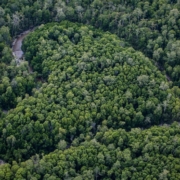
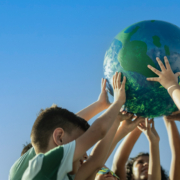
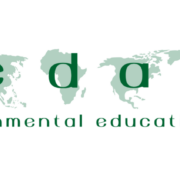
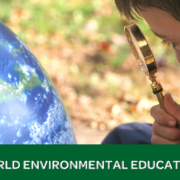

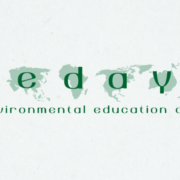

 active partnership creating ideas, developing plans, looking for support. Project activities started in September and the students realized their ideas for better environment and for more beautiful and comfortable school surroundings. Work on project ideas devilment and realization make students more self-confident and responsible about place, where they live and study. It allows them to understand that their local work for better environment is a part of global issues. The improved surroundings of the school are used for school outdoor activities and became a good place for walks for everybody in Madliena. The support of local authorities and students` parents was important and helped the students to carry out their first so great project.
active partnership creating ideas, developing plans, looking for support. Project activities started in September and the students realized their ideas for better environment and for more beautiful and comfortable school surroundings. Work on project ideas devilment and realization make students more self-confident and responsible about place, where they live and study. It allows them to understand that their local work for better environment is a part of global issues. The improved surroundings of the school are used for school outdoor activities and became a good place for walks for everybody in Madliena. The support of local authorities and students` parents was important and helped the students to carry out their first so great project. 

 October 14th is close and it’s time for the forth
October 14th is close and it’s time for the forth 
 Environmental education is one of the national priorities towards achieving the goals of Gross National Happiness. To this effect, Environmental Science for classes 9 to 12 was introduced as optional subject with the aim of developing youths who are in peace and harmony with the tangible and intangible environment. As a consequence, nature is used sustainably for the wellbeing of people and the nature.
Environmental education is one of the national priorities towards achieving the goals of Gross National Happiness. To this effect, Environmental Science for classes 9 to 12 was introduced as optional subject with the aim of developing youths who are in peace and harmony with the tangible and intangible environment. As a consequence, nature is used sustainably for the wellbeing of people and the nature.
 The
The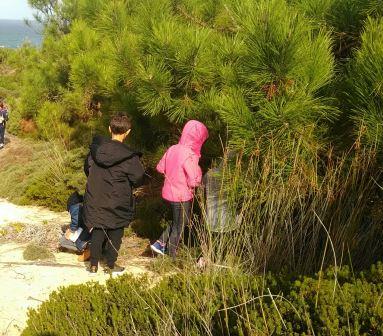 The second edition of the World Environmental Education Day took place from 14 to 26 October 2019,
The second edition of the World Environmental Education Day took place from 14 to 26 October 2019,